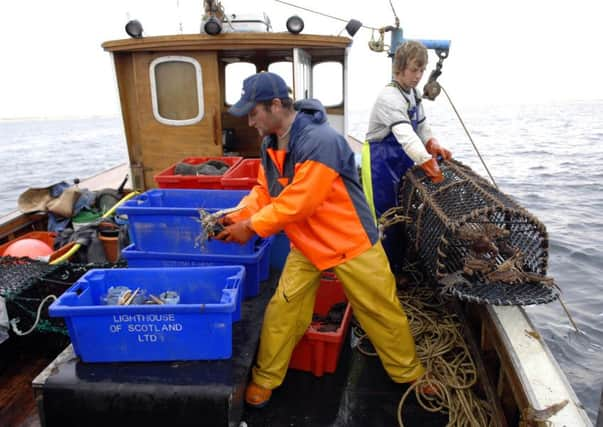Fishermen call for action over equipment dumping


They say every year “rogue” boats tow away equipment worth thousands of pounds and dump it on the seabed, where it continues to “ghost fish” and pose an entanglement risk for sealife and unwitting skippers.
Although most reports are of damage to “static” gear by “mobile” fishers, incidents are also caused by static-on-static and static-on-mobile conflict.
Advertisement
Hide AdAdvertisement
Hide AdProblems range from accidental snagging that forces fishermen to damage nets and ropes when disentangling to accusations of deliberate vandalism.
The issue has affected Scotland’s inshore fleet for decades but has yet to be resolved.
A recent survey of 300 Scottish fishermen revealed gear conflict cost the industry about £1.2 million every year.
And this does not take account of the impact on the environment. An estimated 640,000 tonnes of fishing gear is abandoned in the world’s oceans annually, posing significant environmental and conservation problems.
But in the past 30 years, there have been no successful prosecutions for gear conflict north of the Border.
This is partly because it is not a fisheries offence, which would be overseen by government agency Marine Scotland. Damage to gear is considered vandalism or theft and is investigated by Police Scotland.
Now Ian Mathieson, a crab and lobster fisherman from Stonehaven, has written to rural affairs secretary Richard Lochhead and Marine Scotland to address the problem.
He has lost more than £100,000 of gear in just over a decade, including 14,000 creels and 32 miles of rope. He has lost 150 lobster pots in the past month alone.
And he said something must be done to deal with the issue.
Advertisement
Hide AdAdvertisement
Hide Ad“The financial impact is huge, but our main gripe is, even if you get your money back, nothing is done about the gear left littering the seabed,” he said.
In the letters, he makes several recommendations he believes could help resolve disputes – including increasing the frequency of signals transmitted by the VSM satellite surveillance system. He says this would make attributing responsibility for damage to gear easier.
A task force on gear conflict set up by the Scottish Government criticised the current arrangements, particularly the lack of prosecutions.
Marine Scotland carried out a consultation on the issue at the start of this year, but the report is still to be published.
Alistair Sinclair, chairman of the Scottish Creel Fishermen’s Federation, said, where there is gear conflict, many creelers had chosen to move to poorer fishing grounds as the lesser of two evils.
He said the consultation findings were long overdue, and blamed a lack of manpower at Marine Scotland.
He said: “They are working with a staffing level that is not fit for purpose. They do not have bums on seats. They are stretched far too thin.”
A Scottish Government spokeswoman confirmed the report would be out soon.
Advertisement
Hide AdAdvertisement
Hide AdShe said: “The Scottish Government understands that the majority of fishermen, whether static or mobile, co-operate well on a daily basis, sharing fishing areas when targeting the same species, without conflict.
“However, when gear conflict occurs, it can have a significant effect on individual fishermen.
“The Scottish Government is committed to introducing a new policy to tackle deliberate gear conflict and does not underestimate the challenges ahead.”